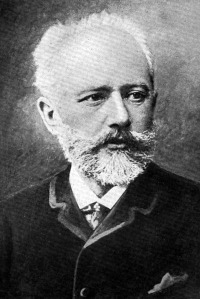 The August 8 concert by the Chicago Symphony Orchestra conducted by Itzhak Perlman will feature Brahms’s Academic Festival Overtureas well as Alisa Weilerstein performing Haydn’s Cello Concerto—both fine attractions in themselves—but for me the highlight will be Tchaikovsky’s Fifth Symphony.
The August 8 concert by the Chicago Symphony Orchestra conducted by Itzhak Perlman will feature Brahms’s Academic Festival Overtureas well as Alisa Weilerstein performing Haydn’s Cello Concerto—both fine attractions in themselves—but for me the highlight will be Tchaikovsky’s Fifth Symphony.
Way back in the 1970s, when Leonard Bernstein became the first conductor to record all six of Tchaikovsky’s symphonies, he made an amusing observation: that a casual concert-goer might easily get the impression that Tchaikovsky composed only three symphonies but, for some strange reason, decided to number them 4, 5 and 6. The first three are rarely performed; the last three are ubiquitous (along with the violin concerto, the first piano concerto, The Nutcracker Suite, “1812” Overture, and many other favorites), a situation that has both helped and hurt Tchaikovsky’s reputation.
The existence of musical snobs is an unfortunate reality in the world of classical music, and there have been some who reach the unfounded conclusion that if Tchaikovsky’s music is that popular, it must be inferior. Which is, in a word, hogwash. When I was doing graduate work at Princeton, I was pleasantly surprised to learn that such musical mega-intellectuals as Milton Babbitt and other champions of Schenkerian analysis held Tchaikovsky’s music in particularly high esteem. His is perhaps the greatest example of music that manages to be stunningly crafted and wildly popular at the same time, no small feat. The enormous emotional range of his music would seem to ensure that, regardless of your mood, Tchaikovsky composed something that will resonate with your feelings.
Strangely enough, Tchaikovsky at first felt his Fifth Symphony was a failure, but its overwhelming popularity with audiences eventually led him to change his mind. Certainly many great conductors have championed it: the CSO’s current music director, Riccardo Muti, programmed it for his debut season at Ravinia in 1973, as had former CSO music director Georg Solti in 1954. Fritz Reiner led it here in 1949, and three of Ravinia’s four music directors—Seiji Ozawa, Christoph Eschenbach and James Conlon—conducted it here as well. (James Levine, oddly enough, conducted both the fourth and sixth symphonies numerous times here, but never essayed the fifth.) On August 8, Perlman will add his interpretation to this glowing legacy of great performances.
